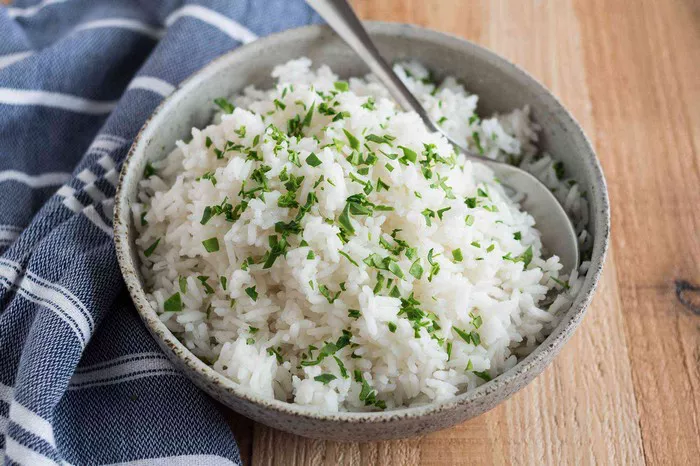For many people with diabetes, managing weight is often associated with losing excess pounds to help control blood sugar levels. However, some diabetics struggle with the opposite problem—difficulty in gaining or maintaining weight. This can be due to various factors such as higher metabolism, digestive issues, or the effects of certain medications. The challenge for these individuals is to gain weight in a healthy and controlled manner without negatively impacting their blood sugar levels. This article will explore the foods that diabetics can incorporate into their diets to put on weight while keeping their blood glucose levels in check.
Understanding the Importance of Healthy Weight Gain in Diabetes
Before diving into the specific foods that can help with weight gain, it’s essential to understand why maintaining a healthy weight is crucial for diabetics. Being underweight can lead to muscle loss, weakened immune function, and decreased energy levels. In diabetics, this can further complicate the management of blood sugar levels, making it harder to control the condition. Therefore, gaining weight in a healthy manner is not just about adding pounds but also about improving overall health and quality of life.
Balancing Caloric Intake with Blood Sugar Control
The primary principle of gaining weight is to consume more calories than the body burns. However, for diabetics, it’s not as simple as just eating more food. The key is to increase caloric intake without causing significant spikes in blood sugar levels. This requires a careful selection of nutrient-dense foods that provide the necessary calories and macronutrients—carbohydrates, proteins, and fats—without leading to hyperglycemia.
High-Calorie, Nutrient-Dense Foods for Diabetics
Healthy Fats:
Healthy fats are a concentrated source of calories and can help diabetics gain weight without adversely affecting blood sugar levels. Some excellent sources of healthy fats include:
Avocados: Rich in monounsaturated fats, avocados are also high in fiber, which helps stabilize blood sugar levels. They can be added to salads, smoothies, or spread on whole-grain toast.
Nuts and Seeds: Almonds, walnuts, chia seeds, and flaxseeds are high in calories and healthy fats. They also contain protein and fiber, making them ideal for weight gain while managing blood sugar.
Olive Oil: A staple of the Mediterranean diet, olive oil is a heart-healthy fat that can be used in cooking or as a dressing for salads and vegetables.
Nut Butters: Peanut butter, almond butter, and other nut butters provide a calorie-dense option that can be spread on whole-grain bread, added to smoothies, or eaten with fruits like apples or bananas.
Protein-Rich Foods:
Protein is essential for building and maintaining muscle mass, which is particularly important for those looking to gain weight. Diabetics should focus on lean protein sources that are low in saturated fat:
Lean Meats: Chicken, turkey, and lean cuts of beef provide high-quality protein without excessive saturated fats. They can be grilled, baked, or sautéed with healthy oils.
Fish: Fatty fish like salmon, mackerel, and sardines are excellent sources of omega-3 fatty acids and protein. These can help with weight gain and have anti-inflammatory properties that benefit overall health.
Eggs: A versatile and affordable source of protein, eggs also contain essential vitamins and minerals. They can be boiled, scrambled, or made into omelets with vegetables.
Greek Yogurt: High in protein and calcium, Greek yogurt is a great option for weight gain. It can be eaten plain or mixed with fruits, nuts, and seeds.
Legumes: Beans, lentils, and chickpeas are rich in protein and fiber. They can be used in soups, stews, or salads to increase calorie intake.
Carbohydrate Choices:
Carbohydrates are a critical energy source, but for diabetics, it’s essential to choose the right type of carbs to avoid blood sugar spikes. Focus on complex carbohydrates with a low glycemic index:
Whole Grains: Brown rice, quinoa, oatmeal, and whole-grain bread are excellent sources of complex carbohydrates that provide sustained energy without causing rapid increases in blood glucose levels.
Sweet Potatoes: Rich in fiber and vitamins, sweet potatoes are a nutrient-dense carbohydrate that can be baked, mashed, or roasted.
Fruits: While some fruits are high in natural sugars, options like berries, apples, and pears have a lower glycemic index and can be part of a weight-gain diet. They also provide essential vitamins, minerals, and antioxidants.
Vegetables: Starchy vegetables like peas, corn, and carrots offer more calories than non-starchy vegetables and can help with weight gain. They also provide essential nutrients and fiber.
Dairy Products:
Dairy products can be a rich source of calories, protein, and healthy fats, especially when choosing full-fat options:
Cheese: Full-fat cheese provides a good amount of calories, protein, and calcium. It can be added to various dishes, such as sandwiches, salads, or eaten as a snack.
Milk: Whole milk is higher in calories compared to skim milk and can be consumed on its own or added to cereals, smoothies, or used in cooking.
Cream: Adding a little cream to soups, sauces, or coffee can boost the calorie content without significantly affecting blood sugar.
Smoothies and Shakes:
Smoothies and shakes can be an excellent way to increase calorie intake, especially for those who find it difficult to eat large meals. These can be made with a combination of:
Greek Yogurt or Milk: As a base for the smoothie, providing protein and healthy fats.
Fruits: Such as berries, bananas, or mangoes for natural sweetness and nutrients.
Nut Butter: To add healthy fats and calories.
Oats or Seeds: For additional fiber and nutrients.
Protein Powder: For an extra protein boost if needed.
Meal Planning and Timing
When trying to gain weight, the timing of meals and snacks is also important. Diabetics should aim to eat smaller, more frequent meals throughout the day to maintain steady blood sugar levels and provide a continuous supply of nutrients. Here’s a sample meal plan that incorporates the above-mentioned foods:
Breakfast: Whole-grain toast with avocado and scrambled eggs, a side of Greek yogurt with berries.
Mid-Morning Snack: A handful of almonds and an apple.
Lunch: Grilled chicken salad with olive oil dressing, quinoa, and mixed vegetables.
Afternoon Snack: A smoothie made with Greek yogurt, banana, peanut butter, and oats.
Dinner: Baked salmon with sweet potato and steamed broccoli.
Evening Snack: A slice of whole-grain bread with cheese or a glass of whole milk with a small portion of fruit.
Monitoring Blood Sugar Levels
While focusing on weight gain, it’s crucial for diabetics to regularly monitor their blood sugar levels. This will help ensure that the increased caloric intake does not lead to hyperglycemia. It’s also important to work with a healthcare provider or a dietitian to tailor the diet to individual needs and adjust medications if necessary.
Exercise and Muscle Building
In addition to dietary changes, incorporating strength training exercises into the routine can help build muscle mass, which contributes to healthy weight gain. Muscle is more metabolically active than fat and can also help improve insulin sensitivity. Activities such as weightlifting, resistance band exercises, or bodyweight exercises like push-ups and squats can be effective.
Hydration and Supplementation
Staying hydrated is essential, especially when increasing protein intake. Water is the best option, but low-sugar electrolyte drinks can also be included if needed. Some diabetics might also benefit from supplements such as protein powders, omega-3 fatty acids, or multivitamins, especially if they have difficulty meeting their nutritional needs through food alone. However, these should be used under the guidance of a healthcare provider.
See also: What’s the Importance of Managing Diet in Diabetes Management
Conclusion
Gaining weight as a diabetic requires a balanced approach that emphasizes nutrient-dense, calorie-rich foods without compromising blood sugar control. By incorporating healthy fats, lean proteins, complex carbohydrates, and full-fat dairy into the diet, diabetics can achieve healthy weight gain while maintaining stable glucose levels. Regular monitoring, exercise, and hydration are also critical components of a successful weight gain strategy. With careful planning and the right food choices, diabetics can improve their overall health, increase their weight, and enhance their quality of life.
Related topics:
What Type of Breakfast Should a Diabetic Eat?


























